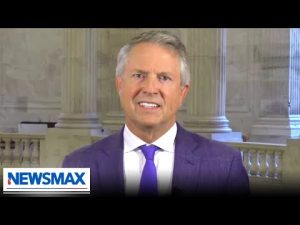In recent weeks, a wave of economic progress has surged across the United States, driven by ambitious trade negotiations with key countries in Asia and Europe. The announcement of new deals with allies like Japan and the Philippines marks a significant shift in America’s approach to global trade. These efforts illustrate a broader strategy aimed at opening markets, promoting American industries, and reclaiming economic strength on the world stage. The administration’s vision aims not just to revive the economy but to position the nation as a dominant force in international commerce once again.
Critics of previous tariff policies have often claimed that these measures would stifle growth. However, the current administration has proven them wrong by demonstrating that strategic tariffs can be beneficial. With countries like the European Union now more receptive to American goods – from cars to agricultural products – these tariffs are helping create a more favorable balance of trade. The total economic impact of these agreements could lead to job growth and investment in domestic manufacturing, signaling a shift towards a stronger industrial base within the United States.
The largest deal so far involves sweeping tariff reductions that will allow American products to flow more freely into foreign markets while protecting local jobs. This recalibration of trade policies has led to a remarkable $26 billion surplus, a monumental achievement after decades of growing national debt and trade deficits. This surplus is not merely a statistic; it reflects a resurgence in economic vitality, where American products regain their rightful place in the global market, boosting both innovation and employment domestically.
One pressing concern remains: illegal immigration and its impact on law and order. Not only is the administration focusing on economic recovery, but it is also committed to strengthening national security by addressing the influx of undocumented individuals. The efforts to expel criminals who threaten public safety reinforce the emphasis on law and order as critical components of America’s resurgence. For many conservative Americans, the call for a secure border aligns with the values of safety and stability that they hold dear.
As trade discussions continue, particularly with China, the administration is optimistic about opening dialogues that could lead to mutual benefits without compromising American interests. Rebuilding relationships while enforcing strict trade agreements is seen as a pathway to long-term economic prosperity. Continued cooperation with allies and a robust stance against countries that threaten fair trade will be paramount as the U.S. navigates the complexities of the global economy.
In sum, the current political and economic landscape is shaping America’s path toward what some are calling the “golden age.” By reversing detrimental policies of the past and embracing a more assertive economic strategy, the U.S. can look forward to reclaiming its status as a powerhouse. The time for conservative values and economic ingenuity in the face of global challenges has arrived, and there is a renewed spirit of nationalism that aims to protect American interests for generations to come.







